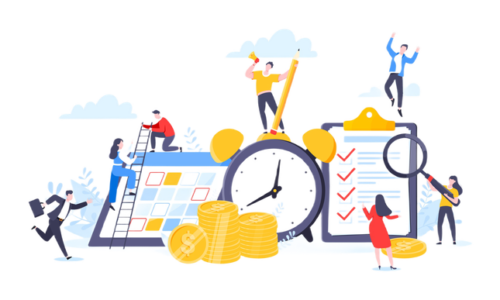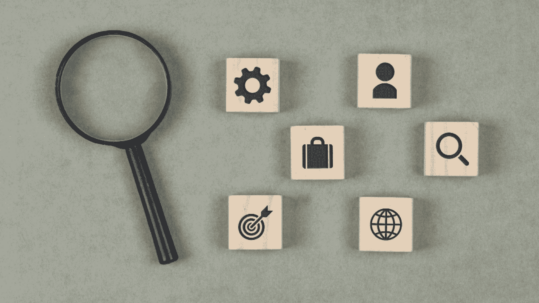
Human resources and payroll are two crucial roles in an organization. People often mistake payroll as a part of HR as their HR team deals with recruiting, deciding salaries, and incentives of employees. Payroll and HR share some functions and goals that are critical for the organization’s success. But they are two distinct departments. While human resources deal with employee relations, payroll is about the paychecks and taxes. There are many more different responsibilities, functions, and goals for HR and payroll. Let’s discuss them in detail below.
What is meant by Human Resources (HR)?
Human resources is the set of people that form the workforce of an organization. The human resources department is the set of people that keeps the workplace engaged, disciplined, and consistent apart from recruiting and onboarding employees. Human resource management (HRM) involves many duties, and improper functioning of those duties will result in workplace failure.
What is Payroll?
Payroll management can be referred to as the process of the company paying its employees. The payroll functions involve calculating and depositing wages, reporting taxes, record keeping, and verifying the pay data. The team in charge of payroll duties maintains compliance with tax laws, delivers payroll checks, records paperwork for new joiners and existing employees.
Now, we’ve got a quick understanding of what is HR and payroll. Let us look into the functions and goals of HR and payroll to understand why an organization needs two different departments for efficient handling of HR and payroll.
Function and Goals of HR
Functions of HR
Human Resources Manager or team is responsible for hiring the right full-time or part-time employees or freelancers, hiring contractors, and also terminating employee agreements.
The roles and responsibilities of HR include:
- Finding and fulfilling talent needs.
- Onboarding.
- Terminating contracts.
- Negotiating salary and benefits with the candidates.
Development
Training and preparing the new hires for their role is also the task of the human resources team. The team should handle training and educational programs for new employees and provide feedback to both employees and managers.
Compensation
Compensation also falls under HRM. The HR team should also identify the appropriate pay based on role, performance, legal requirements, and market conditions.
Safety and Health
As we mentioned earlier, the activities of the HR team include ensuring workforce safety, health, and engagement. They ensure legal safety guidelines in the workplace, and new measures or rules are in practice when laws change.
Employee Relations
This is one of the critical tasks for the human resources team. The employee relations activities include mediating disagreements between employees and employers, between employees and other employees. They’re also responsible for addressing harassment and abuses issues and discussing employee rights or opinions with management and stakeholders.

Goals of HR
The HR department will also have a set of goals in addition to functions. And those goals are to enhance employee engagement so that the employees stay longer with the company. Their key goals are:
- Ensure consistent employee engagement to keep the workforce environment happy and productive. For this, HR members will conduct different programs like retreats, parties to keep their employees motivated.
- HR department works consistently to maintain a strong company culture. They boost employee morale by rewarding employees for their excellent work and retain employees.
- HR managers continually monitor employees’ performance and provide feedback to help improve their productivity, hence overall business efficiency.
- They also provide professional and career development opportunities for employees to keep them updated with skills required for their role.
Functions and Goals of Payroll
Functions of Payroll
Paycheck Processing
Payroll management is more than paying salaries to employees. It includes processing paychecks without errors, verifying salary and hourly rates, attendance, and overtime hours to ensure the correct payment. The payroll manager also should look into necessary deductions such as taxes, retirement contributions, and insurance before processing the payments.
Handling Payroll Taxes
Even small payroll mistakes can cost large penalties to the organization. The payroll manager or your payroll management software should ensure filing W-2s and other forms correctly before the tax day to prevent the penalty fees.
Record Keeping
The payroll team is also responsible for keeping records. As per the Fair Labor Standards Act, employers need to maintain accurate and updated records of their non-exempt workers. The records consist of name, SSN, address, the number of hours worked, earnings, total wages, etc.
Data Accessibility
Not only should the payroll department take care of the above activities, but also they should ensure transparency and data accessibility to their employees. Employees should be able to access their payroll-related information such as payslips, 401(k) summaries, deductions, timesheets, and direct deposits. The payroll department should either provide all the details on a portal or system to make accessibility easy.

Goals of Payroll
Payroll and its goals are crucial aspects of a business. The end goals of the payroll department keep employees satisfied and help businesses run smoothly. Let’s look at the goals of payroll.
- Cost-Effectiveness: The first and foremost goal of the payroll department is to ensure cost-saving efficiency. They can do it by bringing automation and accuracy into the space of the payroll department.
- Company’s Growth: Growth can happen when the company’s key people have peace of mind to make the right business decisions. The payroll team has to ensure organized record keeping and error-free payroll processing.
- Compliance: This is the other important goal for a payroll manager. They need to check if they’re following laws and can provide proof of compliance if required to avoid any penalties.
HR Vs. Payroll: Where do these Two Overlap and Divide?
Although payroll and HR are two different departments, as said, they share many functions. Hence the two departments should coordinate with each other to ensure smooth business functioning. Although the payroll department is responsible for processing salaries, the HR team should ensure their employees are paid correctly to keep up the employee morale. 49% of employees would consider leaving the job if they experienced just two payroll errors. It’s the duty of HR members to prevent employees from leaving.
Also, the two departments should work together to keep employee data accurate and confidential.
On the other hand, most people believe payroll is a function of HR because they deal with everything related to employees. But payroll is a vast subject that deals with laws and a lot of accounting. Every medium and large organization needs a reliable payroll system or team to ensure accurate financial operations.
To receive and stay updated about related content:





